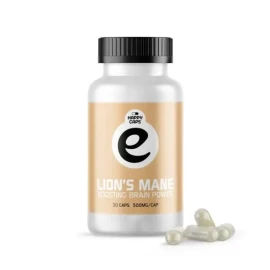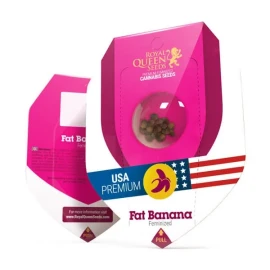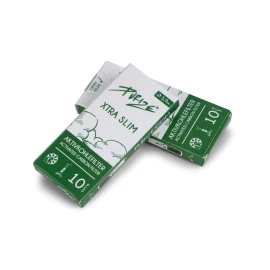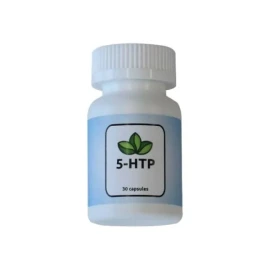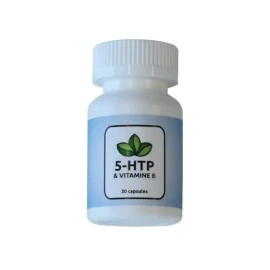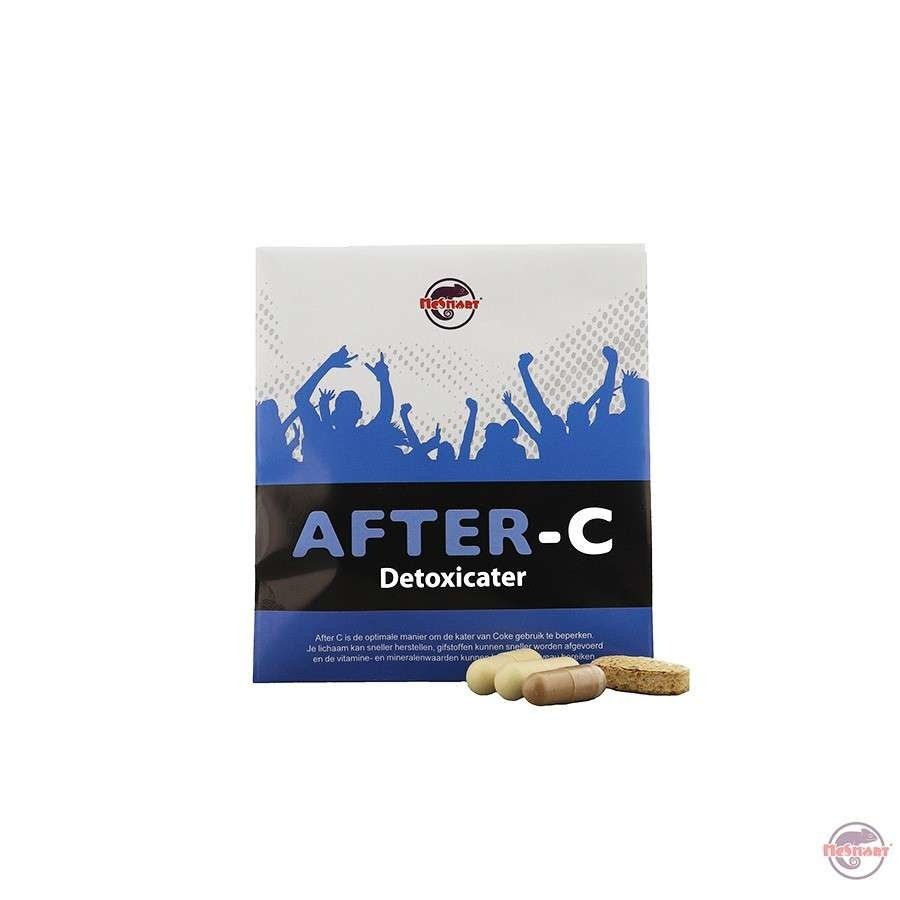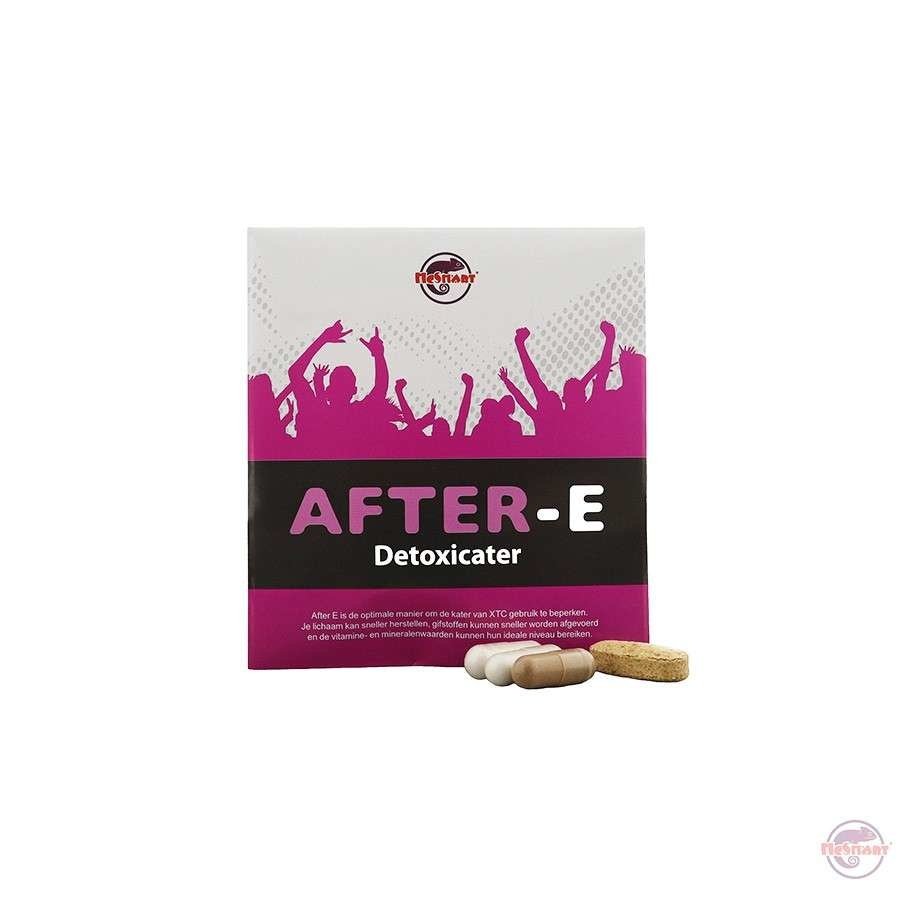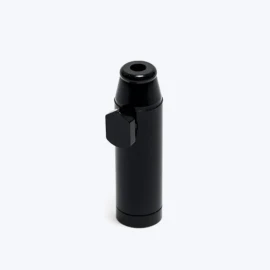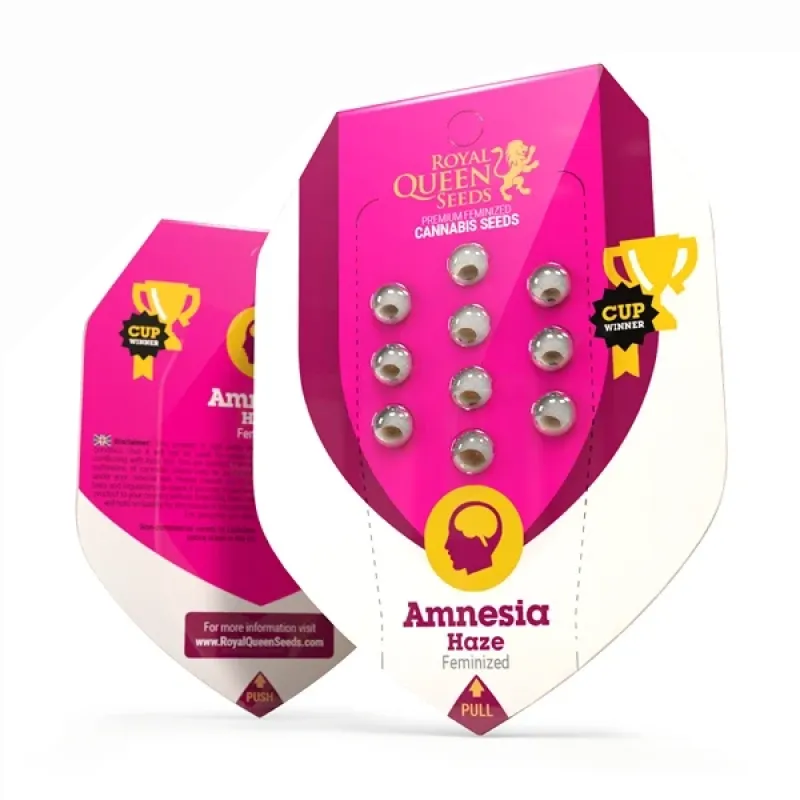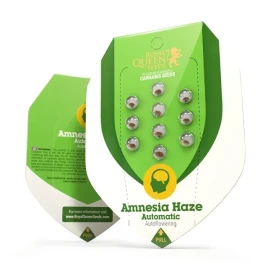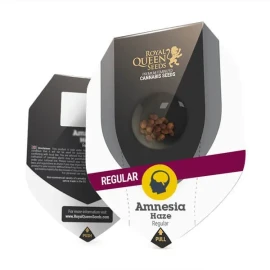Maitake Happy Caps
15,00 €
Maitake supplements, particularly standardized Happy Caps formulations, are gaining recognition among wellness enthusiasts seeking natural immune and metabolic support. This adaptogenic mushroom, revered in traditional Asian medicine for centuries, offers compounds like beta-glucans that may modulate immune function and support healthy glucose metabolism. As research continues to unveil maitake’s therapeutic potential, consumers are turning to concentrated extracts for convenient, measurable dosing.
At-a-Glance Summary:
- What it is: Maitake (Grifola frondosa) mushroom extract in convenient capsule form
- Active compounds: Beta-glucans (polysaccharides), antioxidants, trace minerals
- Primary uses: Immune modulation, metabolic support, general wellness
- Typical dosage: 200-1,000 mg standardized extract daily
Read on for comprehensive science, safety guidelines, and practical advice for choosing quality Happy Caps that deliver measurable benefits.
What is Maitake?
Maitake mushrooms, scientifically known as Grifola frondosa, are native to northeastern Japan, China, and North America. Also called “hen of the woods” due to their distinctive frilly appearance resembling feathers, these fungi have been treasured in East Asian traditional medicine for over 3,000 years. Japanese and Chinese healers historically used maitake as an immune tonic and general health promoter, believing it enhanced vitality and longevity.
Traditional applications included supporting digestive health, promoting energy balance, and strengthening the body’s natural defenses against seasonal challenges. Unlike many mushrooms used purely for culinary purposes, maitake held special status as both food and medicine, often reserved for nobility due to its perceived value and relative scarcity.
Quick Fact: Maitake literally translates to “dancing mushroom” in Japanese, supposedly because people would dance with joy upon finding these prized fungi in the wild.
The mushroom’s adaptogenic properties—its ability to help the body adapt to various stressors—made it a cornerstone of traditional wellness practices, setting the foundation for modern scientific investigation into its bioactive compounds.
How Maitake Works
Maitake’s therapeutic effects stem primarily from its rich concentration of beta-glucans, complex polysaccharides that interact with immune system receptors to modulate cellular responses. These bioactive compounds, along with antioxidants, trace vitamins, and minerals, work through several established mechanisms.
Beta-Glucan Immune Modulation: The most studied mechanism involves beta-glucans binding to specific immune receptors, particularly on macrophages, natural killer (NK) cells, and dendritic cells. This binding triggers a cascade of immune responses, including cytokine production and enhanced immune surveillance. Rather than simply “boosting” immunity, maitake appears to help balance immune function—supporting activity when needed while preventing overreaction.
Metabolic Effects: Research suggests maitake compounds may influence glucose metabolism through multiple pathways. Beta-glucans may slow carbohydrate absorption in the digestive tract, while other compounds appear to enhance insulin sensitivity at the cellular level. Some studies indicate maitake extracts can influence liver glucose production and improve glucose uptake by muscle tissue.
Antioxidant Activity: Maitake contains various phenolic compounds and other antioxidants that help neutralize free radicals and protect cells from oxidative stress. This cellular protection may contribute to the mushroom’s traditional reputation for promoting longevity and overall vitality.
Cellular Communication: Beyond individual mechanisms, maitake compounds appear to support healthy cellular communication networks, potentially explaining their broad-spectrum wellness effects observed in traditional use and modern research.
The concentration and standardization of these active compounds in Happy Caps formulations ensures consistent, measurable delivery of maitake’s beneficial constituents.
Evidence-Based Benefits
Current research on maitake presents a promising but evolving picture, with strong preclinical evidence and emerging human clinical data supporting several key applications. Understanding the strength of evidence helps consumers make informed decisions about incorporation into wellness routines.
Immune Support
Evidence Strength: Moderate
Beta-glucans from maitake demonstrate consistent immune-modulating effects in laboratory and animal studies. Several human trials have shown measurable changes in immune markers, including enhanced NK cell activity and improved antibody responses. A systematic review of mushroom beta-glucans found maitake among the most promising for immune support, with particular effectiveness in older adults whose immune function naturally declines.
Clinical observations suggest maitake may help maintain healthy immune responses during stress periods, though more large-scale human trials are needed to establish optimal dosing protocols. The evidence supports maitake as a valuable component of comprehensive immune wellness strategies.
Blood Sugar & Metabolic Effects
Evidence Strength: Low-Moderate
Several double-blind, placebo-controlled trials have investigated maitake’s effects on glucose metabolism with mixed but encouraging results. A notable study found that maitake extract (200mg twice daily) helped improve glucose tolerance and insulin sensitivity in participants with metabolic concerns over 12 weeks.
However, results vary significantly based on extract quality, dosage, and individual factors. Some trials show minimal effects, while others report clinically meaningful improvements in glucose markers. The variability suggests maitake works best as adjunctive support alongside established metabolic health practices.
Important: Individuals taking diabetes medications should consult healthcare providers before using maitake supplements due to potential additive glucose-lowering effects.
Antioxidant & Adaptogenic Properties
Evidence Strength: Low
Laboratory studies consistently demonstrate maitake’s antioxidant capacity, with extracts showing significant free-radical scavenging activity. However, clinical evidence for adaptogenic effects remains largely anecdotal. While traditional use suggests stress-resilience benefits, controlled human studies specifically measuring adaptogenic responses are limited.
The antioxidant properties likely contribute to overall cellular health, but claims about stress adaptation require more rigorous clinical investigation to substantiate.
Potential Anticancer Properties
Evidence Strength: Low
Preclinical research shows promising anticancer activity in laboratory and animal models, with maitake extracts demonstrating effects on tumor cell growth and immune system activation against abnormal cells. Some small human studies suggest potential benefits as complementary support during conventional cancer treatment.
However, current evidence remains insufficient to support maitake as a primary anticancer intervention. Any consideration of maitake during cancer treatment should involve oncology specialists familiar with integrative approaches.
Cardiovascular Support
Evidence Strength: Low
Preliminary studies suggest maitake may influence lipid profiles and support cardiovascular health markers, but results are inconsistent across trials. Some research indicates potential benefits for cholesterol management, while other studies show minimal cardiovascular effects.
Bottom Line: Current evidence best supports maitake for immune modulation and as adjunctive metabolic support. Individuals seeking natural immune support or exploring complementary approaches to metabolic wellness may benefit most, though maitake should not replace established medical treatments for serious conditions.
Who Should Consider Maitake Happy Caps?
Maitake supplements appeal to various individuals seeking natural wellness support, though certain groups should exercise particular caution or avoid use entirely.
Ideal Candidates:
- Adults seeking natural immune system support, particularly during seasonal transitions or stress periods
- Individuals interested in mushroom-based adaptogens as part of comprehensive wellness routines
- People exploring complementary approaches to metabolic health (with appropriate medical oversight)
- Health-conscious consumers wanting standardized, convenient mushroom extract dosing
- Those following integrative wellness protocols that include immune-supporting botanicals
Consult Healthcare Providers Before Use:
- Individuals taking diabetes medications or insulin (risk of additive glucose-lowering effects requiring monitoring)
- People with autoimmune conditions, as immune-modulating effects may theoretically influence disease activity
- Anyone planning surgery within 2-3 weeks (standard precaution for supplements that may affect bleeding or immune function)
- Individuals taking immunosuppressive medications (potential interference with intended immune suppression)
Groups Who Should Avoid:
- Pregnant or breastfeeding women (insufficient safety data for these populations)
- Children under 18 (lack of pediatric safety and efficacy studies)
- Individuals with known mushroom allergies or sensitivities
- People with severe liver or kidney disease without medical supervision
The general safety profile of maitake is well-established, but the concentrated nature of extract formulations like Happy Caps requires more careful consideration of individual health status and potential interactions than whole food consumption.
How to Use Maitake Supplements
Maitake supplements come in various forms, each offering different advantages for specific wellness goals and lifestyle preferences.
Available Forms:
- Whole/Dried Powder: 1-3g daily, mixed in smoothies or beverages; provides full spectrum of compounds but less concentrated
- Standardized Extract Capsules (Happy Caps): 200-1,000mg daily; offers precise dosing and concentration of active compounds
- Liquid Tinctures: Variable dosing (follow manufacturer guidelines); fastest absorption but may have strong taste
- Dual-Extract Powders: Combine water and alcohol extraction methods; balanced approach between concentration and spectrum
Typical Dosing Protocols:
General Wellness: 200-400mg standardized extract daily, or 1-2g whole mushroom powder
Immune Support: 400-600mg extract daily during seasonal challenges
Metabolic Support: 500-1,000mg extract daily (with medical oversight for diabetes management)
Clinical Protocols: Higher doses (up to 3g extract) may be used under professional supervision
Timing and Administration:
Take with food to minimize potential digestive upset and enhance absorption. Morning or split doses work well for most users. Consistency matters more than specific timing—establish a routine that ensures regular use.
Complementary Stacking:
Maitake combines safely with vitamin C, vitamin D, and probiotic supplements for comprehensive immune support. Synergistic effects may occur with other adaptogenic mushrooms (reishi, shiitake), though start with single compounds to assess individual responses.
Timeline for Effects:
Immune modulation effects may begin within 2-4 weeks of consistent use, though some users report subtle energy improvements sooner. Metabolic effects typically require 6-12 weeks of regular use to produce measurable changes in clinical markers. Traditional adaptogenic benefits may take several months to fully manifest.
Cycling Considerations:
While daily use appears safe long-term, some practitioners recommend periodic breaks (1 week off per month) to maintain sensitivity to adaptogenic effects, though research doesn’t definitively support this approach.
Safety, Side Effects & Interactions
Maitake demonstrates an excellent safety profile in most healthy adults, but understanding potential side effects and interactions ensures safe, effective use.
Common Side Effects:
Most users experience no adverse effects. When side effects occur, they typically include:
- Mild gastrointestinal upset (stomach discomfort, bloating)
- Temporary digestive changes as gut microbiome adjusts
- Rare allergic reactions in mushroom-sensitive individuals (skin rash, respiratory symptoms)
Critical Drug Interactions:
Diabetes Medications: The most significant interaction involves blood glucose-lowering medications. Maitake may enhance these effects, potentially causing hypoglycemia. Monitor blood glucose closely and work with healthcare providers to adjust medication dosing if needed.
Immunosuppressive Drugs: Theoretical concern exists regarding maitake’s immune-stimulating effects potentially counteracting immunosuppressive medications used after organ transplants or for autoimmune conditions.
Anticoagulant Medications: While not definitively established, some mushroom supplements may affect bleeding time. Discuss with prescribing physicians if taking warfarin or other blood thinners.
Autoimmune Disease Considerations:
Individuals with conditions like rheumatoid arthritis, multiple sclerosis, or lupus should consult specialists before using immune-modulating supplements. While maitake may help balance rather than simply stimulate immunity, professional guidance ensures safe integration with existing treatments.
Pregnancy and Breastfeeding:
Insufficient safety data exists for pregnant or nursing women. While traditional use suggests general safety, concentrated extracts haven’t been studied in these populations. Avoid use unless specifically recommended by healthcare providers familiar with botanical medicine.
Surgery Precautions:
Standard recommendation involves discontinuing supplements 2-3 weeks before planned surgery to avoid potential interactions with anesthesia or effects on bleeding/immune function during recovery.
Quality and Regulation:
Maitake supplements are generally recognized as safe (GRAS) by regulatory agencies, but extract concentration standards vary between manufacturers. Third-party testing helps ensure purity and potency, particularly important for therapeutic dosing.
How to Choose Quality Maitake Supplements
Selecting effective maitake supplements requires understanding key quality markers that distinguish therapeutic-grade products from basic formulations.
Essential Quality Indicators:
Extract Specification: Look for clear labeling of extraction ratios (e.g., 10:1, meaning 10 grams of mushroom concentrated into 1 gram of extract) and extraction methods (hot water, dual-extract, or alcohol). Higher ratios don’t always mean better—optimal ratios depend on intended compounds and extraction efficiency.
Beta-Glucan Content: Quality supplements specify beta-glucan percentage, ideally 15-30% or higher. This indicates concentration of primary active compounds and helps calculate effective dosing.
Fruiting Body vs. Mycelium: Prefer supplements made from fruiting bodies (the actual mushroom) rather than mycelium (root-like structures), as fruiting bodies contain higher concentrations of beneficial compounds with better research support.
Manufacturing Standards: Look for GMP (Good Manufacturing Practice) certification, indicating adherence to pharmaceutical-grade production standards. Clear country of origin and manufacturing facility information adds transparency.
Third-Party Testing: Quality manufacturers provide certificates of analysis (COAs) showing testing for heavy metals, pesticides, microbial contamination, and identity verification. Access to current test results demonstrates commitment to quality.
Happy Caps Specific Advantages:
- Standardized extraction process ensuring consistent beta-glucan delivery
- Third-party testing for purity and potency verification
- Clear labeling of extract ratio and active compound percentages
- Vegetarian capsules suitable for various dietary preferences
- Batch-to-batch consistency through controlled manufacturing
Red Flags to Avoid:
- Vague “proprietary blend” listings without specific amounts
- Missing extraction ratio or method information
- No mention of beta-glucan content or standardization
- Lack of third-party testing or COA availability
- Unrealistic health claims or “cure-all” marketing language
- Significantly below-market pricing suggesting quality compromises
Value Calculation: Compare cost per milligram of standardized extract or per unit of beta-glucan content rather than just price per bottle. Higher-quality extracts often provide better value despite higher upfront costs.
Science Snapshot — Key Research Summary
Current maitake research spans from cellular studies to human clinical trials, providing a comprehensive view of therapeutic potential while highlighting areas needing further investigation.
Foundational Research: A comprehensive review in PMC databases analyzing bioactive functions of maitake identified beta-glucans as primary therapeutic compounds, with documented immune-modulating, antioxidant, and metabolic effects across multiple study types.
Human Clinical Evidence: Several randomized controlled trials have examined maitake’s effects on glucose metabolism, with mixed but promising results. A notable 12-week study found 400mg daily of standardized extract improved glucose tolerance in participants with metabolic concerns, while other trials showed more modest effects.
Immune Function Studies: Research demonstrates measurable immune system changes, including enhanced natural killer cell activity and improved antibody responses in older adults supplementing with maitake extracts over 8-16 week periods.
Mechanistic Research: Laboratory studies have elucidated how maitake beta-glucans interact with immune receptors (particularly complement receptor 3 and Toll-like receptors) to trigger beneficial immune responses without causing excessive inflammation.
Cancer Research Context: Preclinical studies show promising anticancer activity, with maitake extracts demonstrating effects on tumor cell growth and immune recognition of abnormal cells. However, human clinical evidence remains limited to small pilot studies.
Current Research Limitations: Most human studies involve small sample sizes (20-100 participants) and relatively short durations (8-16 weeks). Larger, longer-term trials are needed to establish optimal dosing protocols and identify populations most likely to benefit.
Research Trajectory: Ongoing studies are investigating maitake’s potential in metabolic health, immune aging, and as adjunctive cancer support, with several multi-center trials expected to report results within the next 2-3 years.
Frequently Asked Questions
Are Maitake Happy Caps good for immunity?
Yes, moderate evidence supports maitake’s immune-modulating effects. Beta-glucans interact with immune receptors to enhance natural defenses while helping maintain balanced responses. Clinical studies show measurable improvements in immune markers, particularly in older adults.
How much Maitake should I take daily?
Typical dosing ranges from 200-1,000mg of standardized extract daily, depending on wellness goals. Start with 200-400mg daily for general support, increasing gradually if needed. Follow product labeling and consult healthcare providers for therapeutic dosing.
Can Maitake lower blood sugar?
Some clinical trials show glucose-lowering effects, but results vary by individual and product quality. Monitor blood glucose carefully if taking diabetes medications, as additive effects may occur requiring medication adjustments.
Are there side effects?
Most users experience no adverse effects. Mild gastrointestinal upset occasionally occurs, especially when starting supplementation. Rare allergic reactions may occur in mushroom-sensitive individuals.
Can I take Maitake with other mushroom supplements?
Generally yes, maitake combines safely with other medicinal mushrooms like reishi or shiitake. Start with individual compounds to assess responses before combining multiple supplements.
Is maitake safe during pregnancy?
Insufficient safety data exists for pregnant or breastfeeding women. Avoid use unless specifically recommended by healthcare providers familiar with botanical medicine during pregnancy.
How long before I see effects?
Immune-supporting effects may begin within 2-4 weeks of consistent use. Metabolic benefits typically require 6-12 weeks to produce measurable changes. Individual responses vary based on health status and dosing.
What’s the difference between extract and powder?
Extracts concentrate active compounds (like beta-glucans) into smaller doses, while powders provide the whole mushroom with lower concentrations of active compounds. Extracts offer more precise, therapeutic dosing.
What does ‘standardized extract’ mean?
Standardization ensures consistent levels of active compounds (particularly beta-glucans) across batches. This provides predictable dosing and therapeutic reliability compared to non-standardized products.
Happy Caps vs other brands — what to look for?
Compare beta-glucan percentages, extraction ratios, third-party testing availability, and manufacturing standards. Quality products provide clear labeling, current certificates of analysis, and transparent sourcing information.
Buying Guide & Comparison
When comparing maitake supplements, Happy Caps offer several advantages over alternative formats while maintaining competitive value for quality-conscious consumers.
Happy Caps vs. Powder Forms:
Capsules provide precise, consistent dosing without measuring or taste concerns. While powders offer versatility for mixing into beverages, achieving accurate therapeutic doses requires careful measurement. Happy Caps eliminate guesswork while ensuring standardized extract delivery.
Extract Concentration Advantages:
Quality capsule formulations like Happy Caps typically contain concentrated extracts (often 10:1 or higher ratios) delivering therapeutic levels of beta-glucans in convenient serving sizes. This concentration provides better value per dose compared to whole mushroom powders requiring larger quantities.
Value Assessment Checklist:
- Calculate cost per milligram of standardized extract
- Compare beta-glucan content percentages between products
- Factor in third-party testing and quality certifications
- Consider convenience factors (dosing accuracy, portability, shelf stability)
- Evaluate manufacturer transparency and customer support
Quality vs. Price Balance:
While premium products cost more upfront, higher-quality extracts often provide better bioavailability and consistency, potentially offering superior value through enhanced effectiveness and reduced serving requirements.
Conclusion & Next Steps
Maitake Happy Caps represent a promising natural approach to immune and metabolic support, backed by emerging clinical evidence and centuries of traditional use. While not a cure-all, quality maitake extracts offer valuable benefits for individuals seeking evidence-based botanical wellness support.
The current research landscape shows particular promise for immune modulation and adjunctive metabolic support, though more extensive human trials will further clarify optimal applications and dosing protocols. The excellent safety profile makes maitake suitable for most healthy adults when used appropriately.
Recommended Next Steps:
- Consult healthcare providers if taking medications or managing health conditions
- Review detailed product specifications and certificates of analysis for chosen supplements
- Start with conservative dosing to assess individual responses
- Consider maitake as part of comprehensive wellness strategies rather than standalone interventions
For those ready to explore maitake’s benefits, quality standardized extracts like Happy Caps provide reliable, convenient access to this remarkable mushroom’s therapeutic potential.
Related Products
Frequently Asked Questions
Everything You Need to Know

